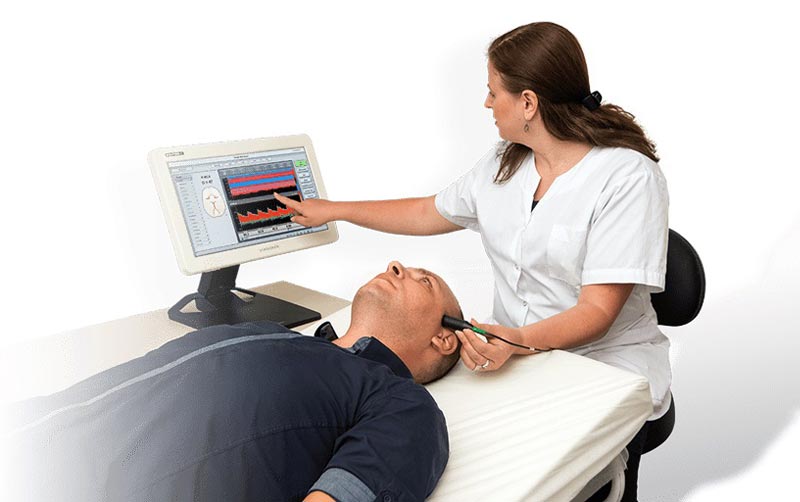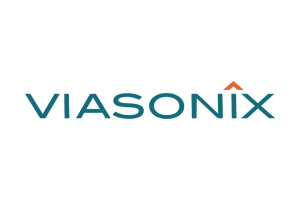TCD Bubble Study: Rapid, Non-Invasive Screening for Patent Foramen Ovale (PFO)
19 November 2025
MedTech Edge supports clinicians in Australia with the TCD bubble study. The Dolphin/XF system delivers speed, comfort, and accuracy in PFO screening.
Detecting a patent foramen ovale (PFO) is vital in patients with unexplained stroke, transient ischemic attack (TIA), or other neurological conditions linked to right-to-left shunts. While transesophageal echocardiography (TEE) has long been used for confirmation, it is semi-invasive, time-consuming, and often uncomfortable. The TCD bubble study provides a safe, non-invasive alternative that enables rapid, repeatable screening without the need for sedation or specialised imaging suites.
Modernising PFO Screening with Advanced TCD Technology
The TCD bubble study has been performed for decades, but its accuracy and ease of use have often relied on operator skill and the stability of probes. Maintaining consistent signals on both sides of the brain can be challenging, especially during patient manoeuvres such as Valsalva. These limitations have historically reduced efficiency and made reproducibility more difficult.
To overcome these challenges, manufacturers have developed robotic, automated bilateral scanning systems that streamline probe placement and improve signal acquisition. These devices enable clinicians to complete tests more quickly, consistently, and with greater patient comfort. Among them, the Dolphin/XF robotic probe system from MedTech Edge stands out for its speed, ease of use, and targeted design for bubble study procedures.
Key Features of the Dolphin/XF
The Dolphin/XF brings several innovations to the table that make it especially suited to complex functional tests like PFO detection:
• Automated Bilateral Scanning: Robotic probes position and maintain stable contact on both sides of the head, reducing operator dependence and improving reproducibility.
• Rapid Signal Acquisition: Bilateral scanning can be completed in seconds, saving time during contrast injections and minimising patient discomfort.
• Comfort and Stability: The lightweight headset allows patients to be seated, lying down, or even standing, offering flexibility in clinical settings such as ICUs or stroke units.
• Specialty Testing Modes: Dedicated protocols for bubble studies, vasomotor reactivity (VMR), and emboli detection make it easier to run targeted, repeatable assessments.
• Advanced Visualisation: High-resolution depth “heat maps” help clinicians quickly identify optimal signal depths, improving accuracy and interpretation.
Balancing Innovation with Choice
Many systems can perform a TCD bubble study, but the Dolphin/XF is recognised as a flagship option for rapid, non-invasive PFO screening. Its robotic bilateral scanning reduces operator dependence and helps deliver consistent, repeatable results. By addressing common challenges such as probe stability and patient cooperation, the Dolphin/XF makes bubble study procedures more reliable and efficient.
The choice of diagnostic equipment depends on factors such as patient volume, workflow, and staff expertise. The Dolphin/XF is designed to meet these needs by combining speed, comfort, and advanced testing protocols in one system. This balance of innovation and practicality allows healthcare providers to strengthen their screening processes and achieve better outcomes for patients.
Delivering Better Outcomes in Neurological Care
The TCD bubble study remains an essential tool for early detection of PFO and other right-to-left shunts, providing a fast, patient-friendly alternative to more invasive imaging techniques. With the Dolphin/XF, clinicians can achieve greater efficiency, accuracy, and comfort in their screening process, ultimately supporting better outcomes for patients.
As part of a comprehensive TCD portfolio, the Dolphin/XF reflects how our team at MedTech Edge continues to advance neurological diagnostics — combining innovation with practical solutions for modern healthcare settings.
Contact us at MedTech Edge today to see how we can support your PFO screening and diagnostic programs.
Related Blog Article: Transcranial Doppler (TCD) for Subarachnoid Haemorrhage—Early Vasospasm Alerts for Neurocritical Care
Optimized by: Netwizard SEO





